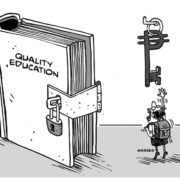SMOKING kills, as advertisements would say it, but it remains a choice.
If you smoke, you know that cigarettes are harmful to your health, but you still choose to do it, no matter how society tries to stop you.
This week, professionals in the international tobacco industry, visitors and exhibitors are all looking forward to saying “Mabuhay!” as Manila will once again host Asia’s first all-inclusive tobacco trade exhibition.
The tobacco trade show, organized by ProTobEx ASIA in conjunction with its sister-show Inter-tabac ASIA, will hold the region’s only international trade show exclusively highlighting tobacco products and accessories.
Aside from offering unparalleled entertainment and cultural attractions, the Philippines was chosen as a venue because of its lucrative tobacco industry.
According to Tobacco Asia publisher Glenn Anthony John, tobacco continues to play, an significant role in the local economy, earning millions of dollars for the country.
“There is a long and rich history of tobacco cultivation dating back hundreds of years, and the Philippines produces a wide variety of tobacco types from a strong and resilient agricultural base,” John explained.
Alarmed by the impression it will leave, the United Nations immediately called the attention of the Philippine government to take actions against the trade show.
In a letter addressed to President Benigno Aquino, the World Health Organization (through UN), reminded the government of its pledge as a signatory to the international Framework Convention on Tobacco Control last year.
Part of the agreement is to ban tobacco advertising, promotion and sponsorship and the government’s commitment to regulate tobacco and protect Filipinos from its harmful effects.
“The exhibition should not be used to promote tobacco. We are against any activity that promotes tobacco use, and our advice to the government is to withdraw any endorsements,” WHO adviser Eigil Sorensen told reporters.
Last year, Aquino was already castigated for allowing the country to host the same trade show.
“Former Philippine finance and health secretaries criticized a similar event, but Aquino had sent a welcome note, saying the trade show benefited the economy,” Associated Press reported.
The laissez-faire Philippine government has been criticized for not taking a strong stand on the tobacco control policy being implemented by WHO and UN.
This is a fallback from the country’s efforts in controlling and stopping tobacco use.
In its recent study, the Asian Development Bank reported that two-thirds of the of the world’s tobacco users live in 15 countries (WHO 2011a), and 5 of these high-burden countries (People’s Republic of China, India, Philippines, Thailand, and Vietnam) are in Asia.
The number of daily cigarettes consumed per smoker in Asian countries is low compared to that in developed countries.
It also noted that close to 14 million adult Filipinos smoke everyday while 10 die each hour from tobacco-related diseases.
The country’s annual spending for the treatment of smoking-related diseases is higher funding collected through taxes by the government from tobacco companies.
“Tobacco consumption is already disproportionately prevalent among the poor. A recent report found that people with a low-income smoke more than those with a higher income. Not only do the poor tend to smoke more, there is some evidence to support that the harm caused by tobacco to them is greater,” the report further explained.
One step forward, two steps backward. Alarmingly enough, even the recent implementation of Republic Act No. 10351 or Sin Tax law is not enough to discourage people from smoking.
Mortality and business aside, smoking is a problem that crosses political and social boundaries. The tobacco industry will continue to thrive, if its commercial and political freedom remains exploitable.
While the tobacco industry employs millions of Filipinos and aids the economy, its adverse consequences are yet to come. The trade show is a reminder of that.
(AJPress)





